- Home
- Kōji Suzuki
Dark Water Page 21
Dark Water Read online
Page 21
As she looked carefully at the broken stems of the leaves she’d just plucked, she noticed a yellow liquid oozing from the veins. She brought the leaves up to her nose in an attempt to detect a aroma. She could not tell whether she smelled nothing because the plant was odourless or because her runny nose had dulled her olfactory sense.
…I’ll have to come back tomorrow and take a look.
She would have to return the next day to see whether the plant, true to its name, sprouted new leaves to replace the ones she’d just plucked. It was an ideal incentive for keeping at her daily early morning walks. She would pluck off the leaves here every day and return the next day to see if they had sprouted again.
Satisfied with her resolution, she looked up. It was then that she saw it. A small strip of light caught her eye. At first, she could not determine the origin of the light. It did not seem to be radiating directly from the sun as it began to peep above the horizon. It gave the impression of having flashed brilliantly for an instant, leaving a lingering image on her retina, before vanishing again.
She tried training her eye on the spot where she had seen the gleam vanish. Sure enough, there it was once again. From the same angle, the gleam caught her eye, only a little less intense than before. Over there in a hollow on the rocky shore, something seemed to be reflecting sunlight as it bobbed in a pool of seawater. At a certain angle, it sent a sharp gleam to catch Kayo’s eye.
Descending to the other side of the railings, she went to the side of the tidal pool. Careful to avoid getting wet, she squatted to take a closer look. She discovered that the source of the reflected light was a plastic bag containing a semi-transparent plastic case. It appeared as though the waves had washed it toward the rocks. The cylindrical case tossed in the water as if endowed with a will of its own. She thought she heard a voice nudging her to reach out and pick up the plastic case. Although she was not in the habit of picking up flotsam washed up onto the shore, she could not resist reaching out and picking up the case. She took the dripping bag between her fingers and held it up to the light of the rising sun. The case it held was securely sealed with rubber tape.
She could see in the case, in turn, a rolled-up piece of paper.
…A letter!
With a flash of intuition, she tore open the plastic bag and removed the case. The romantic fancy that occurred to her in that instant was that she had just received a letter that had been washed up after being carried a great distance. Conversely, it could be a child’s doing. She recalled having seen her elder son once attach fanciful letters to balloons on sports day at his school, releasing all the balloons into the air at the finale. It did occur to Kayo that it was quite possible that some child had done the same kind of thing by entrusting letters to the sea rather than the air.
Kayo decided not to read the contents of the case immediately, putting the case in her pocket instead and starting back home. She somehow felt that her leg was not dragging as heavily now as it had on her way out.
What she found in the case upon opening it was the neatly folded and rolled up copy of a map of the Chichibu Mountains and environs. She could see that there was some writing on the reverse side; before she knew it, she was reading it aloud. The first time, it failed to arouse the least emotion within her. It simply sounded like a phrase or two from some homily.
She noticed that the sender was a Fumihiko Sugiyama and that the message bore a date at the bottom, indicating that it had been written over a year ago. It did not seem too fanciful to conclude that Fumihiko Sugiyama had written the letter to his son Takehiko. Kayo was unable to imagine in what sort of circumstances Fumihiko had written the letter. She was also at a loss to understand the significance of the map of the Chichibu Mountains. Meanwhile, the address on the message said Ohta Ward, Tamagawa (River Tama) and even gave the house number. A look at a map revealed the neighbourhood to which the message was sent. The locale was roughly on the boundary between Tokyo and Kanagawa Prefecture, at the mouth of the River Tama.
The letter lay in a cupboard drawer for some time after. It had not been put away and forgotten, however. Whenever the fancy struck her, Kayo would take it out and pore over it. The more often she read the message, the more the lines gave off the aura of a powerful will. It occurred to her that this force could become all the greater if the letter were delivered to the intended recipient. She decided to see to it that the letter reached the address it bore. The idea came to her naturally: she’d deliver the letter in person rather than through the mail. During the fortnight or so that she had pored over the letter, she sensed that the letter had imparted strength to her. She felt compelled to seek out the address in order to confirm what she’d been given and to show her gratitude for it.
At the same time, she felt that this would be a new goal for her. It would involve, for one thing, making all the right train connections from Yokosuka to Tamagawa in Ohta Ward. This was not the kind of plan she could feel sure about implementing unless she could make it around Cape Kannon and back again without any trouble.
After this, her early morning routine was to rise before dawn, set out on her walk round the cape, pluck some leaves from the angelica plant and offer them to the little stone jizos, praying that her leg would get well again.
She thought that the delay in getting the letter to its destination was excusable. After all, the message had been written nearly a year and a half ago; surely it could wait a little longer. Yet it was conceivable that the family knew about the letter and was waiting anxiously for its delivery. The thought jolted Kayo out of her complacency and spurred her on in her efforts to rehabilitate her leg.
Around the time the angelica came into bloom, her leg had recovered sufficiently to allow her to travel all the way to Tamagawa and back by herself. Kayo chose a fine, sunny afternoon to put her plan into action.
The condominium of the address was not far from the station, at least as the crow flies. However, Kayo got lost somewhere along the way and had to venture up and down several streets before finally finding the apartment building. By the time she arrived, she was so utterly exhausted that she did not think she could walk another step. She had to lean sideways with her entire weight on the handrail to make it up the three steps leading to the condominium lobby. At this rate, she couldn’t make it back to the station unless she first found somewhere to rest.
Once in the deserted condominium lobby, she saw two sofas set facing each other in the rest area. She decided that was where she’d take her break, but first she had to find the mailboxes.
The names of four people were written on the mailbox to which the letter was addressed: SUGIYAMA, Fumihiko, Kyoko, Takehiko, Akihiko. Kayo felt that the father, who’d sent the message, must be Fumihiko, while Takehiko must be his son. From the content of the message, Kayo had guessed that it was a letter from a father to his son. The names on the mailbox in front of her seemed to corroborate her supposition. She found herself imagining all kinds of possibilities. What kind of circumstances could have made the father write a letter like that to his son? Where was the father now and what was he doing? The father’s name was still on the mailbox. Did that mean that he was still living together with his family? Or did it mean…?
Kayo put the letter back in the film case, just as she’d found it. It made a metallic clang as she dropped it into the mailbox. The sound reassured Kayo that it had finally reached its intended destination.
She had done her part. It was with a mixture of fatigue and satisfaction that her small frame sank to rest on the sofa, there to give herself up to various imaginings. Suddenly, some activity seemed due in the deserted lobby. She looked over to see a little boy of about four or five who’d pushed open the glass door of the entrance with all his might.
‘Mom, hurry-y-y!’ the boy yelled.
At that moment, his mother was trying to get up the steps to the condominium with a baby carriage containing a screaming infant. As she lifted the carriage, she leaned sideways on the handrail to get up the
three steps, just like Kayo. Once up the steps, the mother entered the door her son was holding open. Her son ran ahead again to open up the way for his mother, jumping energetically up and down as he went. Making his way to the mailboxes, he again started jumping, to try to reach the family’s box, but fell short. His mother caught up, quickly retrieved the contents, and held them up high. The boy let out a cry of protest; his eyes fixed on the film case as though it were some treasured prize, he started jumping higher than ever. The mother stood there staring suspiciously at the film case that she’d just taken out of the mailbox, while the little boy, leaping up by her side, howled ‘I wannit!’ and ‘Show it!’
Then the elevator doors slid open, and the three of them disappeared inside, leaving the lobby to be completely engulfed in the same deserted silence that had pervaded it before their arrival. In the silence, the baby’s screams and the little boy’s howls lingered in Kayo’s ears. Before the sounds could die down completely, Kayo stood up laboriously.
The clamour that pressed itself into that brief instant in time must have left a deep impression indeed. A full score years later, Kayo could still see that little boy springing up and down. I know I can count on you to take good care of your mother and the child soon to be born. These had been the final words of the father to that little boy, and even now it was with a poignant delight that Kayo remembered his vibrant little face, so full of life.
Naturally, Kayo had memorized the whole letter. Towards the end of the previous summer, she had recited the letter to her granddaughter Yuko, telling her that it was a piece of treasure washed up by the sea. After listening to the words, her granddaughter had stared backed at Kayo dubiously. The girl clearly didn’t understand how the words amounted to any kind of ‘treasure’. Indeed, even Kayo could not say for certain that she understood the truth that lay behind the message. Yet there could be no denying that no matter what that truth may be, it had suffused every inch of her body and provided spiritual support. She’d started to take morning walks every day, and her left leg had begun to heal ever since and was by now almost fully recovered.
It would soon be the spring holidays. It would not be long before Yuko would arrive to stay with her. Kayo plucked off a leaf from an angelica and offered it to a roadside statue. As she hurried home, she bounced with life.
THE END
FB2 document info
Document ID: 262dd2ed-8fa4-41e2-8adc-9ef2900791e0
Document version: 1
Document creation date: 30.9.2013
Created using: calibre 1.5.0, FictionBook Editor Release 2.6.6 software
Document authors :
Namenlos
About
This file was generated by Lord KiRon's FB2EPUB converter version 1.1.5.0.
(This book might contain copyrighted material, author of the converter bears no responsibility for it's usage)
Этот файл создан при помощи конвертера FB2EPUB версии 1.1.5.0 написанного Lord KiRon.
(Эта книга может содержать материал который защищен авторским правом, автор конвертера не несет ответственности за его использование)
http://www.fb2epub.net
https://code.google.com/p/fb2epub/

 Death and the Flower
Death and the Flower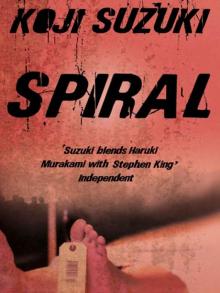 Spiral
Spiral Loop
Loop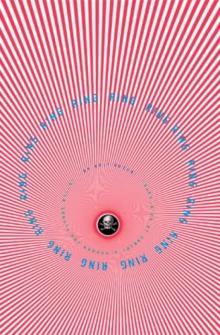 Ring
Ring S
S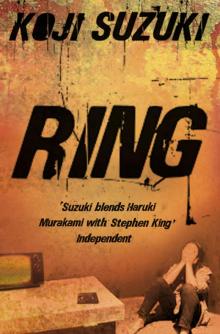 The Complete Ring Trilogy: Ring, Spiral, Loop
The Complete Ring Trilogy: Ring, Spiral, Loop Birthday
Birthday Edge
Edge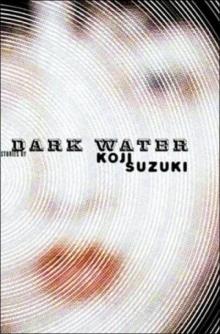 Dark Water
Dark Water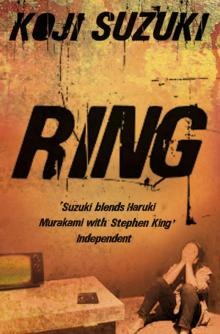 The Complete Ring Trilogy
The Complete Ring Trilogy